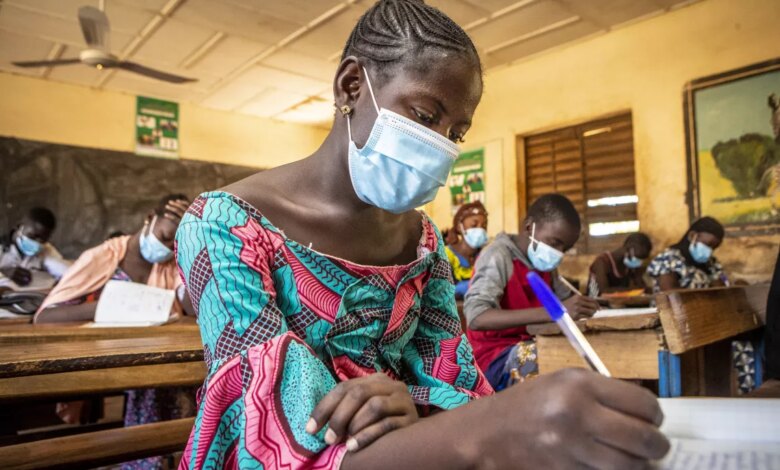Education | UNICEF

[ad_1]
UNICEF in Mali supports the Ministry of National Education, the Ministry of Vocational Training and the Ministry of Higher Education and Scientific Research to fulfil a vision of lifelong learning. This starts with ensuring children start learning early in life through positive parenting and pre-primary education. When children are of school-going age, UNICEF and partners support their access to, and retention in, school, with the vision of ensuring children receive the skills and qualifications they need to pursue their dreams, start businesses, or get jobs later in life.
UNICEF’s education programme aligns itself with national priorities and puts an emphasis on the most vulnerable children: those who are currently outside of the school system, girls, children on the move, children with disabilities and those affected by conflict or other emergencies.
UNICEF works with partners to provide out-of-school children with non-formal and informal education, to facilitate school reintegration through accelerated learning programmes, and direct reintegration, and in the case of conflict-affected children whose schools are closed, community-based education opportunities. UNICEF also works hand in hand with the Government of Mali and other partners to support the improvement of quality education through:
- improving the governance of schools by building the capacity of School Management Committees;
- teacher training and the establishment of peer-to-peer training among teachers of the same school, including through innovations and new technology;
- increased access to pedagogical and school materials for school principals, teachers and schoolchildren.
In 2019, UNICEF supported the return to school of more than 200,000 out-of-school children and more than 30,000 children benefited from early learning activities.
In order to bring quality education to every child in Mali, UNICEF in Mali works closely with the Government of Mali, as well as civil society partners, donors and other UN agencies such as UNESCO and WFP. UNICEF also plays the role of lead coordinating agency in the cluster system for humanitarian intervention and in the Local Education Group for development interventions in Mali.
[ad_2]
Read More



